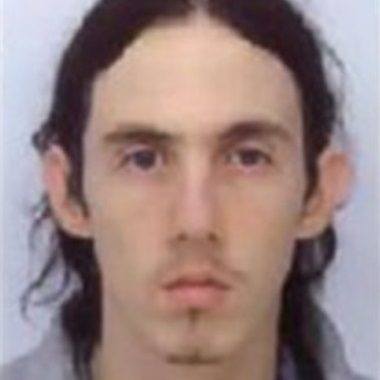Christian paedophile Richard Huckle: why the whole Church must respond

It's a devastating story. British paedophile Richard Huckle is facing life imprisonment for a hideous catalogue of sexual abuse, his victims all children and young people.
For years he's been allowed to commit atrocious crimes in Malaysia (and very possibly elsewhere, including the UK), and has even documented them in thousands of pictures and videos online in the so-called 'Dark Web'. And the final, horrifying twist for those of us affiliated to the church: Huckle is reported to be a "practising Christian".
Worse still, it's allegedly Huckle's Christianity that has created his opportunities for access to and abuse of children. He groomed children while performing voluntary work in Kuala Lumpur with a church-based charity. When in the UK, he was an active member and Sunday school teacher at a church in Kent.
The news is both deeply upsetting and extremely challenging for Christians. And while our instinctive reaction might be to try to cut Huckle loose as a man who was cynically using the Church as a cover story, we simply can't be sure that's true. It's very possible that Huckle was both a vile offender and a true believer at the same time. There's every chance that he really is one of us; utterly disgraced, but still part of the family. We can't simply wash our hands of him, his beliefs, or his actions.
His case presents a number of questions. Why did no one in the organisation he volunteered for pick up on his behaviour? And what needs to change to prevent someone using the Christian faith as a cover for the abuse of children – an issue we perhaps told ourselves was confined to only certain parts of the Church, and has now been fixed elsewhere thanks to the DBS (Disclosure and Barring Service) checking system?
The Church is the biggest provider of youth and children's work in the UK, and improving safeguarding has been arguably one of its biggest concerns over the last decade. The Churches' Child Protection Advisory Service (CCPAS) works with churches every day to help them follow best practice and establish systems to prevent people like Richard Huckle ever coming into contact with vulnerable children. Yet these systems can never be foolproof. If someone doesn't have any kind of record of sexual offences, their background checks will show up as clear. At that point, it's up to leaders to assess their suitability for the role for which they've applied.
The challenge then isn't to improve the background checking procedure, but rather to question the way churches and organisations naturally tend to rely on them as the key indicator of someone's suitability for a role with children and young people. When someone applies for such a position, whether as a staff member of volunteer, leaders must personally assess them, asking God for guidance, and seeking second opinions from others if they have any concerns. I'm not suggesting we start a witchhunt, or turn volunteering for Sunday school into an intense trial of someone's character, but we can't simply wave people through on the basis of a clear DBS check. It might just be that they haven't been caught yet.
There's also a major challenge for charities that send volunteers into countries such as Malaysia where the policing of foreign child sex abusers is known to be slack. Instead of sending the hope of Christ into the lives of children and young people, they could unwittingly be sending the very work of the devil. They too must address their interviewing, screening and monitoring procedures; again, while Huckle is very possibly a sociopath (and therefore extremely adept at lying), the fact that his abuse went unnoticed when it was happening at such scale should be a grave concern to all involved in putting him there.
Huckle himself rightly now faces a lifetime in jail, but even so, that's not the end of our association with him. As his story is reported in the coming days, those words "Christian","Church"and "Sunday school teacher" will doubtless come up time and again, scratching against each of us as they do. And as this happens, we'll all get a small taste of what it must be like to live as a peaceful practising Muslim in an age when the media reports daily on 'Islamic terror'.
Yet we can't simply say he isn't one of us: he very possibly is. The Bible tells us that "All have sinned and fall short of the glory of God", and while Huckle's crimes are repellent and evil, in one sense he's no different to any of the rest of us who manage to duplicitously hold a relationship with God in one hand, and a continued commitment to our particular brand of sin in the other. Huckle's depth or choice of sin doesn't alter the fact that he could have a relationship with God, albeit hugely strained and dysfunctional. And perhaps most shockingly of all, it doesn't mean that God loves him any less. The scandalous truth of Grace is that he isn't beyond redemption, even considering the gravity of what he's done. However hard we find it to do so, we should pray for him.
That said, Huckle's behaviour is utterly abhorrent, and it's hard for the moment to see past the anger that his crimes stir up in us. More than that, it should present a challenge to every single church and organisation that works with children and young people. If any good can come out of this terrible story, it will be that every one of us takes steps to ensure that it is never repeated.
Martin Saunders is a Contributing Editor for Christian Today and the Deputy CEO of Youthscape. You can follow him on Twitter: @martinsaunders











